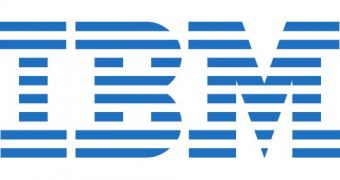IBM seems bent on becoming a prominent supplier of security and compliance solutions for the public sector, fact seen in its continued efforts to expand its Business Analytics and Optimization Consulting organization. It plans to integrate Guardium into its Information Management Software portfolio that has more than 35,000 experts.
Guardium focuses on security but the acquisition was especially aimed at giving IBM the possibility to provide better compliance solutions. The main aim is to safeguard organizations' internal data and to automate certain tasks, delivering real-time database monitoring and protection to business clients.
"Organizations are grappling with government mandates, industry standards and business demands to ensure that their critical data is protected against internal and external threats," said Arvind Krishna, general manager of IBM Information Management practice in a statement. "This acquisition is another significant step in our abilities to help clients govern and monitor their data, and ultimately make their information more secure throughout its lifecycle."
Today's organizations have to store data in silos and, when accessing it, they must still keep it protected. Guardium's acquisition will allow for continuous access and activity monitoring, which will protect high-value databases against external threats and intrusions (hacks, viruses, etc.). Compliance is also a major issue that IBM seeks to address. Guardium's technology identifies patterns and anomalies in data access and usage, thus enabling organizations to preserve the integrity of their data and turn it into a strategic business asset.
"The truth is compliance is what sells security," stated Gartner Research VP Avivah Litan. "It gives them the software they need to sell into those markets [healthcare and financial companies]. [Guardium's technology] is very effective in certain situations. It excels at privilege-use monitoring.”
Gartner believes IBM will have the highest chance of scoring business deals with the aforementioned healthcare and financial organizations, since they have both high volumes of data and a great need for data integrity. Even small hacks might irreversibly affect certain researches, possibly putting back the work of scientists by years.
Healthcare and finances aren't the only fields targeted. Since Guardium's technology excels in monitoring tasks, it is perfect for the public sector. This means that its business solutions would be very well suited for transit systems, for instance. IBM's press release gives an example of how Guardium's technology can assist overall performance in such areas.
“The Washington Metropolitan Area Transit Authority (Metro) operates the second largest rail transit system in the United States and transports more than a third of the federal government to work. Washington Metro needed to safeguard sensitive customer data and simplify compliance with the Payment Card Industry Data Security Standard (PCI-DSS), without impacting performance or changing database configurations. With more than 9 million credit and debit card transactions yearly, Metro is classified as a top-tier Level 1 merchant by the PCI-DSS standard. With Guardium's technology, Metro gained granular visibility into all database transactions, allowing it to protect the privacy and integrity of their critical data and identify potential fraud in their ERP/HR system,” was revealed in the press release.
"Guardium gives clients unprecedented visibility and control over their data access activities while taking advantage of automation to deliver rapid return on investment," said Ram Metser, chief executive officer, Guardium. "The combination of IBM and Guardium provides clients with a comprehensive solution for safeguarding critical enterprise information and preventing fraud without the complexity of traditional approaches."
The visibility and control over data, provided by real-time watch on database access, allows for increased business transparency and accountability, reducing the risks for business leaders to be forced to make decisions based on data that has been compromised.
This is IBM's 28th acquisition aimed at supporting Information Management strategy. Financial aspects have not been made public.

 14 DAY TRIAL //
14 DAY TRIAL //